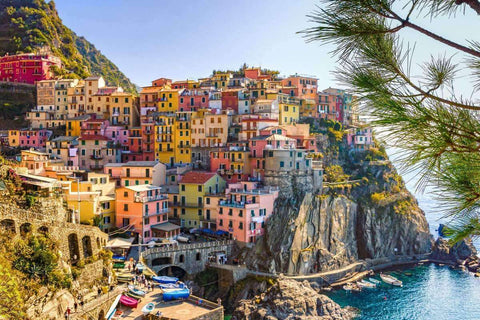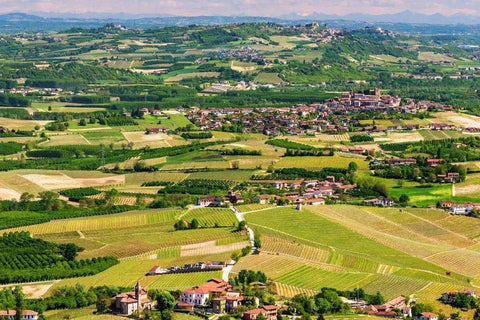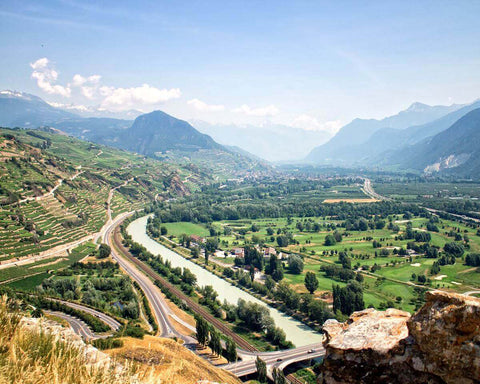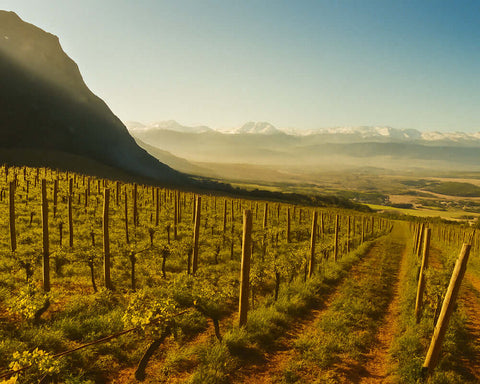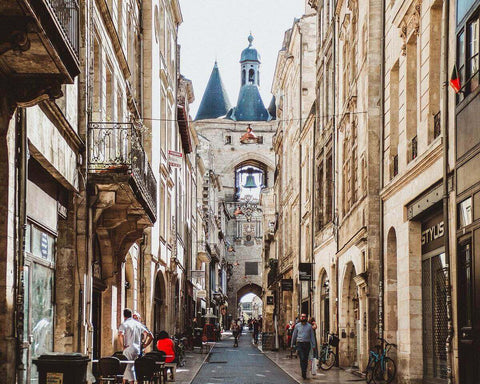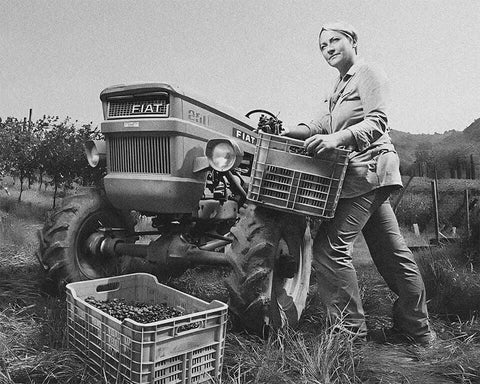Introduction
Liguria, while often celebrated for its picturesque towns such as Cinque Terre and its culinary delights like pesto, Liguria holds a special significance in the world of viniculture.
With a rich history of wine production that predates Roman times, Liguria has maintained its commitment to cultivating unique grape varieties that flourish in its challenging terrains.
Especially noteworthy is the region's contribution to organic and natural wine cultivation, with a strong emphasis on preserving the authenticity of its native grapes.
Among its vinous treasures, the Vermentino stands out, embodying the maritime essence of Liguria in every sip.
Table of Contents
History
Historically, Liguria's geographical location made it a vital maritime and trading hub, which facilitated the exchange of goods, cultures, and viticultural practices. The region's wine-producing legacy can be traced back to the Etruscans and later the Greeks, who introduced specific grape varieties and winemaking techniques.
Over the centuries, Liguria witnessed various dominations, from the Romans to the Genoese Republic, each leaving an indelible mark on its vinicultural landscape. Despite its limited land area and challenging terrains, Liguria's inhabitants, with their unwavering passion and innovative spirit, have preserved and enhanced the region's winemaking traditions, ensuring that its wines resonate with history and authenticity.
Terroir
The terroir of Liguria is a harmonious blend of maritime and mountain influences. Bounded by the Ligurian Sea to the south and the Apennine Mountains to the north, the region boasts a Mediterranean climate with mild winters and warm, sunlit summers.
The constant sea breezes play a pivotal role in moderating the temperatures, ensuring optimal ripening conditions for the grapes. Liguria's terrains are predominantly steep, with vineyards often perched on terraced slopes overlooking the sea.
The soils, composed of a mix of limestone, clay, and sand, offer excellent drainage and impart distinct mineral notes to the wines. This combination of maritime climate, challenging topography, and mineral-rich soils makes Liguria's terroir uniquely suited for the cultivation of its indigenous grape varieties.
Wines
Vermentino: Liguria's most iconic white grape, Vermentino, produces wines that are the very essence of the Mediterranean. With its aromatic profile of citrus, white flowers, and subtle almond notes, Vermentino wines are crisp, refreshing, and embody the maritime character of Liguria.
The proximity to the sea imparts a salinity to the wines, enhancing their complexity. Vermentino from Liguria, often labeled as "Vermentino di Liguria," is celebrated for its balance, aromatic intensity, and its ability to pair seamlessly with a plethora of dishes, especially seafood.
Other Notable Wines: Beyond Vermentino, Liguria is home to a plethora of indigenous grape varieties that produce distinctive wines. Pigato, another prominent white grape, is known for its robust structure and flavors of citrus and herbs. Rossese, the primary red grape of Liguria, yields wines with bright red fruit aromas, delicate spices, and a lively acidity.
Liguria also boasts lesser-known varieties like Albarola and Ormeasco, each adding to the rich tapestry of the region's vinous offerings. The wines of Liguria, whether whites, reds, or rosés, are crafted to be enjoyed young, capturing the freshness and vibrancy of the Ligurian terroir.
Cuisine
Liguria's culinary repertoire is as diverse and captivating as its landscapes. Given its coastal location, seafood holds a place of prominence in Ligurian cuisine. Dishes like "Fritto Misto," a medley of fried seafood, or "Trofie al Pesto," pasta tossed in the region's iconic basil pesto, are staples.
Olives, especially the Taggiasca variety, and olive oil play integral roles in Ligurian dishes, adding richness and depth. The region is also famed for its breads, like Focaccia Genovese, a soft, olive oil-rich bread often flavored with rosemary or olives.
Liguria's cuisine, with its emphasis on fresh, local ingredients, pairs harmoniously with its wines, offering a gastronomic experience that is both authentic and evocative of its Mediterranean heritage.
